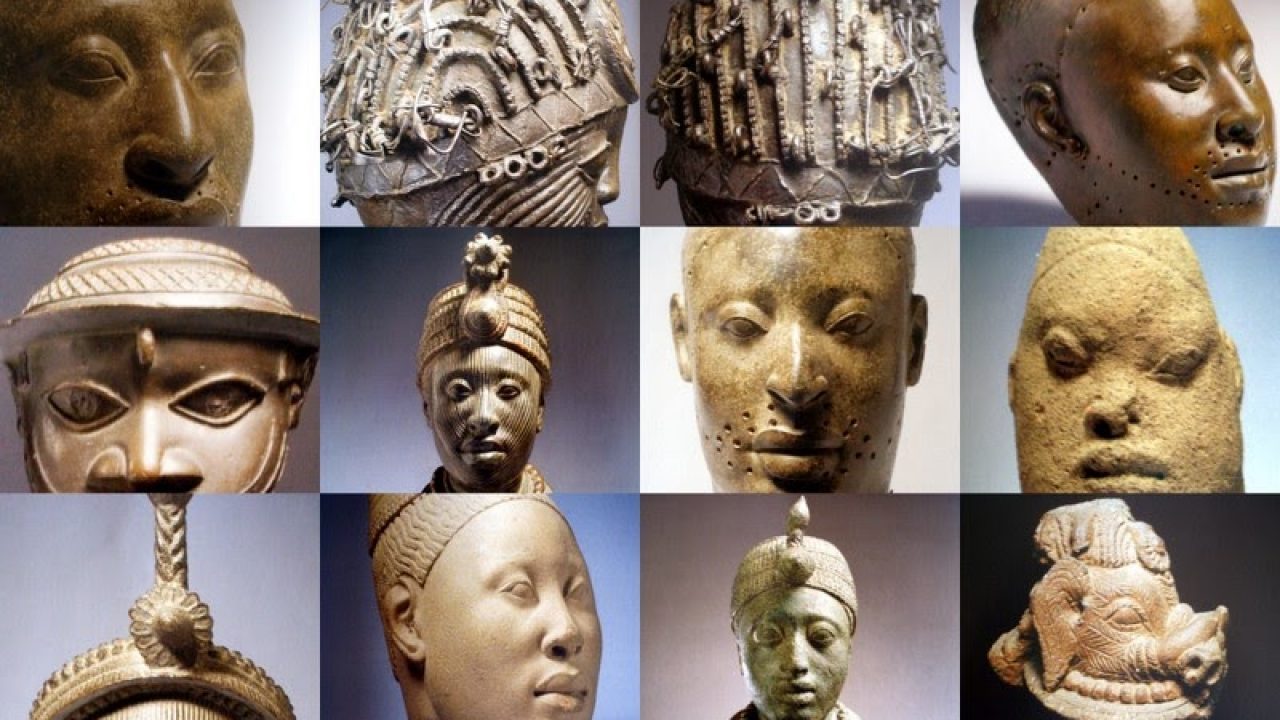Once upon a time. A Nigerian First Lady visited Spain and was shown around the country’s galleries where she was impressed by the centuries-old paintings, artworks and buildings. So impressed was she that in her remarks she said, “Nigeria has no history.” Or something like that.
The comment at the time-triggered outrage. Our first lady was nailed to the cross of public outrage, her knowledge of her country’s history was ridiculed and her understanding of her place as the first lady of this very proud country was called to disrepute.
- Nnamdi Kanu Laments Torture In DSS Custody, Seeks Transfer To Prison | TRUST TV
- BREAKING: Reps step down PIB after rowdy session
The outrage is understandable. What is less so is that for one to have any kind of grasp about Nigerian history, one has to be very deliberate, one has to comb the scanty body of literature on that subject and perhaps acquaint oneself with the mementoes of this history—its numerous artefacts scattered in grungy, dark and damp museums across the country. Because our history, rich and proud as it is, is not something that is very obvious. There is no great museum of significant status that showcases this history and artefacts and as a matter of fact, history as a subject was once removed from the school curriculum for years.
Recently, the National Theatre, subject of a recent concession to a private company that has undertaken to renovate it, was closed. This development has caused the displacement of the permanent exhibition of the National Gallery of Arts (which in reality does not have any gallery for art of the country). An official of this gallery recently met a diplomat from an Asian country and when the two were introduced, the diplomat was delighted and expressed his earnest desire to visit the gallery. Shame-faced, the official confessed that there was in fact no gallery to visit.
How a significant cultural institution like this continues to be treated like an internally displaced agency, a vagabond or a street urchin is only reflective of the country’s attitude to its history, its arts and culture.
This attitude culminated in the ceding of Abuja’s designated cultural hub, designed to have theatres and galleries, to pecuniary interests. That plot of land today hosts the Yar’Adua Centre and the Silverbird Galleria. The Arts and Craft village nestled in the shadow of these two centres, has been closed for years, left to fall into rot. It won’t be surprising to see the facility repurposed for something else that is not related to the arts.
During the Obasanjo years when Mr Femi Fani-Kayode was woefully failing as the minister of aviation, with several plane crashes recorded under his watch, the president instead of sacking his minister decided to move him to the Ministry of Culture. This is the attitude that most governments bring to the aspect that deals with our history and culture, which is not only significant for national pride, socialisation, learning and the finer tastes but a very lucrative revenue generation source.
When Italy was going through a difficult time in its recent history over failing infrastructure and dwindling economy, what helped keep the country afloat was its history and culture.
Thousands of tourists visited Italy, as they do every year, to see the country’s arts and historical monuments, pumping billions into the country’s economy.
In Florence, the Uffizi Gallery, a massive building was commissioned in 1581 to house the city’s finest works of art from the Renaissance period. In 2020, a total of 659, 043 people visited the gallery. Imagine how much revenue these visitors generated in ticket sales alone. Imagine how much they will inject into the economy from the food and souvenirs they will buy.
Of course, the Uffizi is inimitable and today houses thousands of art works. It is safe to say that no museum or gallery in Nigeria compares to just one section of the Uffizi. Strangely, those who should be bothered by these developments are not.
So bad is this state of affairs that no sooner had the British agreed to return the art works they stole from Benin in the name of the 1897 “punitive expedition” that a headless-chicken-dash to find where to house them began. The Oba of Benin and the governor of the state for a while seemed to be in conflict over where to house them.
Today, Nigeria’s history and artefacts are being rescued by random individuals like Reverend Paul Obasi, a Catholic priest who has made it his mission to collect and preserve Igbo deities. While his motives are spiritual, its artistical and cultural significance will be appreciated in time.
The relevance of the art is fundamental in nation building. Because pride in a nation is often a product of that country’s history and heritage. It is for this reason that attempts to “rebrand” Nigeria will always be hollow and fail, if they are not deeply and well thought-out to incorporate this history and heritage.
Nigeria has a history. It just needs to take care of this history as much as it should take care of its future.

 Join Daily Trust WhatsApp Community For Quick Access To News and Happenings Around You.
Join Daily Trust WhatsApp Community For Quick Access To News and Happenings Around You.


